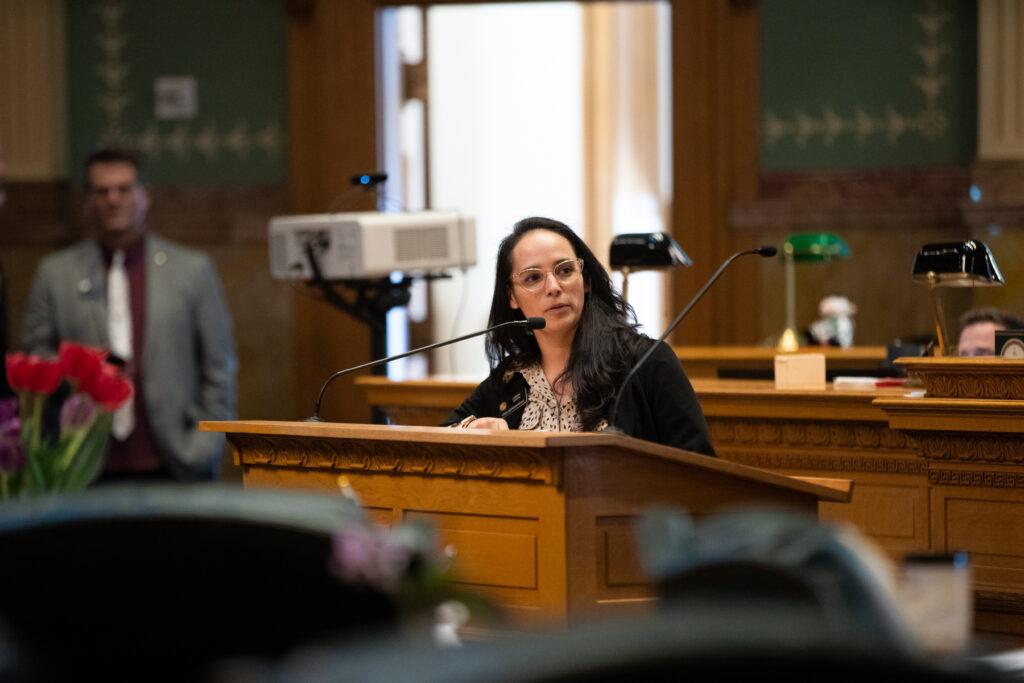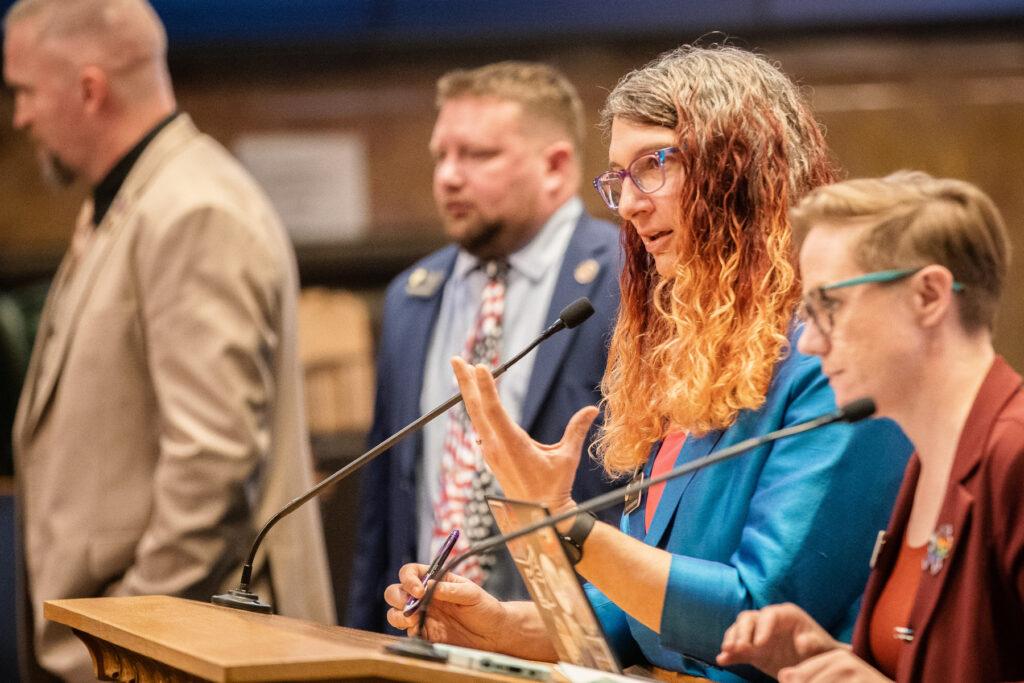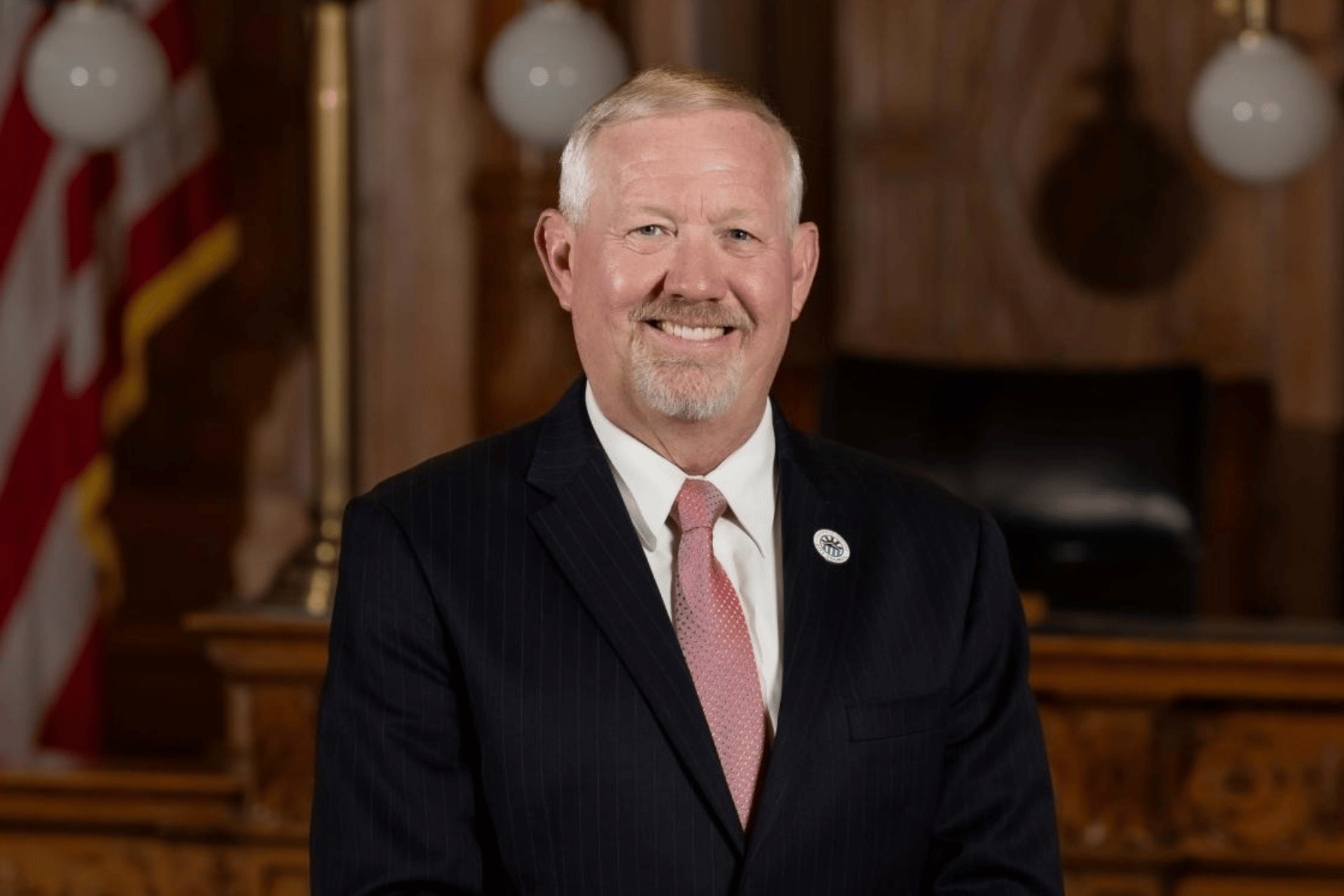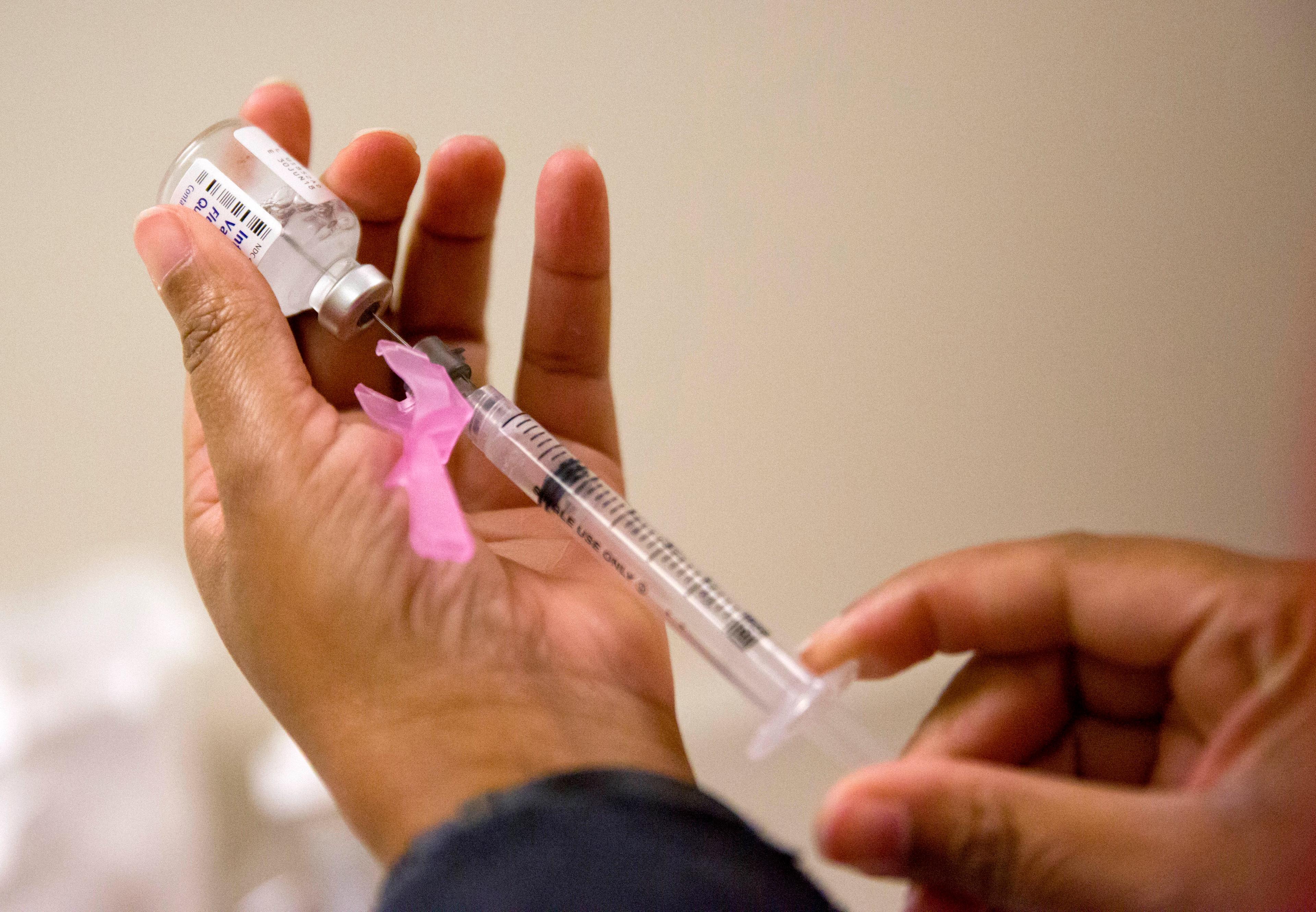
Debates at the Colorado capitol that touch on rights for transgender individuals, especially those of trans youth, have always been politically fraught. But this year lawmakers on both sides of the aisle are bracing for some especially volatile conversations, as majority Democrats seek to further expand state protections to push back against the new Trump administration.
A bill is expected to be introduced at the statehouse soon that would make misgendering or “deadnaming” — when a transgender person is called by the name they used prior to transitioning — a specific form of discrimination and harassment.
The goal for backers is to make it easier for transgender individuals to file a lawsuit or a complaint under the Colorado Anti-Discrimination Act. To do that though, the person would have to show the violation was intentionally reckless, not an honest mistake.
Democratic sponsor, Rep. Lorena Garcia of Adams County, said this was a top issue members of the transgender community said they wanted the state to address.
Currently, she said, it’s hard to bring a case forward on these grounds. “Because it's couched under respecting gender identity and gender expression, it makes it really difficult for individuals to be able to prove, ‘I have been harmed in this way.’”
Garcia said just accidentally using the wrong name or gender once wouldn’t be deemed harassment or discrimination.
“(But) if I come to you and I tell you over and over again that my name is something and you keep saying it's this, then you are recklessly, intentionally wanting to do it,” she explained. “Or if you're like, ‘no, I'm not going to call you that because I just don't want to.’”

News of the bill raised concerns among some lawmakers that it could result in legal penalties for people who don’t intend to cause harm. Republican Rep. Matt Soper of Delta, who doesn’t have a position yet on the bill, said any new legal standard needs to come with a high bar.
“Think about your day-to-day life: You've probably encountered someone that you’ve honestly mistaken their gender, and it was not anything wrong,” he said. “We've probably all made that mistake at least once in our lives.”
Garcia’s bill goes further than misgendering and deadnaming. It would also ban schools from creating policies that single out one particular community, according to Garcia. For instance, school dress codes would need to be gender-neutral, as would any policies on parental notification requirements for nonlegal name changes.
Another provision would limit how parents’ handling of their child’s gender identity could be factored into custody decisions.
“We've seen instances where one partner goes after another parent and says that they're abusing their child because they're supporting them in dressing according to their gender identity or because they support them in accessing hormones,” said Garcia. “So we are just affirmatively saying, that cannot be used in custody cases.”
Garcia’s bill isn’t the only effort this session to expand protections for trans people. Democrats also want to pass a state law requiring insurance coverage for gender-affirming care. Another bill would require a death certificate to reflect the gender identity of the deceased person at the time of their death, based on public documents or their next of kin.
These proposals are likely to get strong pushback from the GOP minority
Bills over trans rights — especially those focused on juveniles — have sparked heated debates at the state Capitol in recent sessions, and this year is shaping up no differently.
“We need to ensure that we are not creating a special class of people that have rights and privileges above and beyond others,” said Republican Sen. Lisa Frizell who represents Castle Rock and Parker. She said lawmakers have to be careful about these kinds of conversations.
“In my humble opinion, I think that there's some knee-jerk reaction that's going on over what they think might happen as opposed to what will actually happen,” said Frizell.
On his first day in office, Trump signed an executive order on “Restoring Biological Truth to the Federal Government”, which removed federal recognition for any gender besides male and female. Since then his administration has moved to restrict gender-affirming care to people under 19 years old; tried to move transgender women inmates to male prisons; banned transgender people from joining or serving openly in the military; started to crack down on schools that support students in transition; and erased references to trans people from federal websites.
The president has also taken steps to prevent trans girls and women from competing in women’s sports, under an order titled “Keeping Men Out of Women’s Sports”. The issue has come up at the statehouse in recent years; Frizell sponsored a bill two years ago to require students to compete in athletics based on their sex as assigned at birth, which Democrats defeated.
She said she doesn’t see this as a controversial issue.
“It had everything to do to ensure that our girls can participate in sports per their Title IX right and do so safely and comfortably without being afraid of being harassed in a locker room or injured on the field,” said Frizell. ”I think that most people in the country agree that girls have the right to expect to be able to participate in sports with other girls.”
Frizell is adamant she doesn’t see the issue as anti-trans, but others complain it deprives the very small number of trans youth in Colorado schools from participating comfortably in activities with their peers.

“You're going to destroy the lives of these people who just want to live their life,” said Democratic Rep. Brianna Titone of Arvada, Colorado’s only trans-state lawmaker. “You're going to make an example out of them for what purpose? It is just cruelty. It's cruelty. And that's all it is.”
Titone said ever since Trump’s first set of executive orders members of the trans community have reached out to her terrified about how government policies could affect their lives or their children. Titone described the administration as spreading fear and intimidation.
“It would make it so these students would have to stay in the shadows,” she said. “It's an attempt to erase everyone.”
Democrats hold a wide majority in Colorado but it’s not clear whether policies they’ve put in place to advance trans rights will hold up in the current federal climate. At the same time the state is trying to protect access to gender-affirming care for minors, hospitals have stopped providing treatment for fear of losing federal funding. The governing body for high school sports in Colorado has yet to say if it will stand by its policy of allowing trans athletes to compete. And at least one school district has moved to mirror federal policy on only recognizing two genders.
When it comes to debating new policies this session, one thing is for sure: the topic remains an area of deep division, with a lot of people seeing the issue as an existential threat. Democrats already defeated two Republican bills related to transgender people. One would have made it a class 2 felony to help an out-of-state minor to come to Colorado for gender-affirming care, another would have made it harder for medical professionals who provide that care to get malpractice insurance.
Soper, who has worked closely with Titone in the last six years at the capitol, said he hopes the debates stay civil. He wants everyone under the Gold Dome to focus on the fact that they’re all human.
“I see her as a person. I don't judge her by her life choices. And I would say Colorado and the nation would be better off if people had that optic rather than wanting to do all-out bans on one extreme or the other,” he said.
Editor's Note: This article has been updated to include information about Republican bills this session.
- Children’s Hospital Colorado suspends gender-affirming treatment, following White House executive order
- Denver Health is pausing gender-affirming surgeries to comply with Trump executive order
- Denver’s annual marriage marathon was more than just a Valentine’s celebration this year, many couples married out of fear of Trump’s new administration









